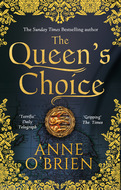Kitap dosya olarak indirilemez ancak uygulamamız üzerinden veya online olarak web sitemizden okunabilir.
Kitabı oku: «The Disappearance», sayfa 2
January 1971
Bombay, India
When Audrey wakes up, the first thing she notices is the stillness. The small room in which she’s lying in a tangle of sweaty sheets isn’t by any means silent – the din of Bombay is alive right outside the window – but the absence of the rumble of the ship’s engine rings louder than it ever did on the ship. A week after she’s arrived, Audrey’s still acclimatising to being on land. Truth be told, she’s slightly terrified of Bombay and has hardly ventured out unless Janet’s there, literally to hold her hand, to guide her across the streets, to fend off the beggars and street hawkers that swarm around them, and to flag down rickshaws the two of them use to get anywhere too far to walk.
But today Audrey has a plan. Today is the first day she’s going to take on this strange city alone; to conquer a corner of it. On the small table that counts both as Janet’s dressing and dining table, there’s a copy of Audrey’s parents’ wedding certificate, which names the small church in which they were married. Janet’s asked around for her at work, and Audrey now has a hand-drawn map showing her how to find it. For the first time since she’s arrived in Bombay she gets up with a purpose in her step. She washes quickly and dresses, makes some toast, and steps out into the chaotic street, where the warmth of the January air hits her.
Audrey stands still for a second, feasting her eyes on the dusty palm trees that look so exotic to her, their heavy fronds dancing likes drunken spiders in the breeze. This is home now, she thinks, even while her senses revel in everything that’s unfamiliar: the smells, the furious honks of car horns and the shouts in Hindi, Marathi, and a tangle of other languages – a gabble of sound she’s unable to decipher.
Audrey’s memorised where she needs to go – it’s not far – and she walks as quickly as she can, trying, but not always managing, to stick to pavements while avoiding pedestrians, traffic, and holes in the road. Ahead of her there’s a commotion and she sees the traffic’s come to a halt as a couple of cows amble about in the middle of the road. Janet’s explained to her that this is perfectly normal, and it’s exactly how she imagined Bombay would be, but she still can’t believe her eyes. Someone’s trying to lead the cows off the street so traffic can pass, but no one except her seems to bat an eyelid at the strange juxtaposition of cows, cars, bicycles, and bullock carts that makes up this pungent traffic jam. As Audrey watches, one of the cows lifts its tail and deposits a steaming cowpat in the middle of the road. Audrey turns down a side street just before the smell hits her.
At first she doesn’t see the church. It’s not big, and it doesn’t stand out from the dirty buildings surrounding it. She double-checks her map, then stands back on the other side of the street and scans the facades to be sure she’s in the right place before she goes in. Yes, it looks nothing like the churches she’s used to back home, but there’s a steeple peeping out from behind a dusty tree. It’s definitely the church. Audrey takes a deep breath, closes her eyes, and imagines her mum arriving for her wedding, picking her way down the street in her finery knowing her groom was waiting inside the church. Holding the image in her head, she pushes open the heavy wooden door and enters.
It takes a minute for Audrey’s eyes to become accustomed to the gloom of the interior after the bright sunshine outside so she stands still, taking in the sparse wooden pews – perhaps only seven or eight rows – and the small altar at the front. Dust motes dance in the sunbeams that penetrate the stained glass windows. When her eyes have adjusted, Audrey walks slowly down the aisle, picturing her mum doing the same on her wedding day, a small posy of garden flowers clasped at her chest. At the altar she stops, closes her eyes, and stands in silence, feeling the moment.
‘Can I help you?’ A woman’s voice cuts in and Audrey’s eyes snap open. She spins around.
‘Oh, hello,’ she says. ‘I hope you don’t mind … I … I think my parents were married in this church and I just wanted to come and see it.’
‘Lovely! Welcome.’ The woman waves her hand at the church’s interior. ‘Please stay as long as you like. When was the wedding? I could possibly dig out the record for you.’
‘Oh, could you? That would be fantastic! They were married in 1940.’
The woman looks thoughtful. ‘Yes. I’m sure we have those records. I’d need a day or so to find it but I could definitely get it out for you. Do you know which month?’
‘Yes – June.’
‘Okay, well, if you’d like to pop by again tomorrow I’ll have it ready for you.’
‘Thank you so much! It’s incredible. I’m here now, where they got married. I can almost feel them here.’
‘Have they been back themselves?’
‘No – they’re – they passed away.’
‘I’m so sorry to hear that. Well, you’re most welcome. Whenever you like. Just come. The door’s always open.’ The woman gives Audrey a kind smile and turns back to the ante-room from which she came. Audrey sits gingerly on the front pew and closes her eyes. As the peace settles around her, Audrey can feel the essence of her dad. It’s as if a part of him is here in this church. She’s grown up with stories of him coming here every Sunday; of him wading through the monsoon rains or sheltering from the sun under an old umbrella on his weekly walk to this very place. This church has been a part of her childhood and now here she is. A smile washes over Audrey’s face, and, perhaps for the first time since her father died, her whole body relaxes.
March 1971
Bombay, India
Audrey and Janet walk arm in arm down Churchgate after dinner. In the distance, they spot a busy café, and the sound of its resident jazz trio floats to them on the night air. The street is alive with sounds, smells, and people. Audrey breathes deeply, inhaling the scent of this exotic city and revelling in the warmth that still comes as a surprise to her every time she steps outside. In England it’d still be coat weather. Janet looks longingly at the crowd of suited and booted punters that spills into the café’s front terrace, even at this late hour. She lets go of Audrey’s arm and dances a few jazz steps in the street, then turns back to face Audrey.
‘They say this place makes the only genuine cappuccino in town. We’ve got to try one, Auds. What do you say?’
Audrey looks at her watch. She starts her new job in the morning but, equally, she doesn’t want to disappoint her friend. Janet has been so kind.
‘Umm,’ she says.
‘Come on! It’s only a coffee. Carpe diem!’ Janet grabs her arm again. ‘I still can’t believe you’re here! And we’ll be working together from tomorrow! Don’t worry! I’ll look after you!’
‘Okay, just one, though. A quick one.’
Audrey allows herself to be drawn towards the café. She still remembers the mix of shock and delight on Janet’s face when she’d turned up unannounced at the address given on the aerogramme. Aside from her visits to the church, her first few weeks in Bombay are a blur. Until very recently Audrey’s still had moments when she wakes up in the morning not knowing where she is nor why; mornings when she wakes expecting to be in her bedroom in London, then realises with a jolt that she’s on the other side of the world. She still has mornings when the grief is too raw, too painful, and she’s capable of doing nothing but lying, numbly, under the sheet, where Janet finds her when she comes home from work. But, in the last few weeks, the fog has started to lift and Audrey’s beginning to realise that she feels an affinity with the crazy, chaotic, noisy city that is Bombay.
The two women walk into the café and seat themselves at an empty table. Janet looks at Audrey and smiles.
‘I know I’ve said it a million times, but I’m so glad you came,’ she says. ‘It’s done you good. You look human now, compared to the ghost who turned up at my door.’
‘Thank you,’ says Audrey. ‘You’ve been amazing. I don’t know what I’d have done without you.’ She smiles at her friend. ‘But I do still feel a bit lost.’
‘Of course you do.’
Audrey’s eyes suddenly fill with tears. It happens at the most inopportune moments – times when something reminds her of her dad: a smell, a sound, the shape of a person, a voice. She can neither predict nor control it.
‘I’m so sorry,’ she says, dabbing at her eyes with the fresh hankie she keeps on her at all times. It’s one of her mother’s: good cotton, with a bright flower embroidered in one corner and, as Audrey lifts it to her eyes, she sees her mum tying it around her little knee to stem the blood after she’d fallen in the park.
‘Your dad was the best,’ says Janet gently. Audrey nods. Although it’s painful, especially to hear him mentioned in the past tense, she likes that Janet knew him; likes that she can talk to her about him.
‘Ignore me,’ Audrey says, flapping her hand at her face. ‘I’m okay. He was the best, wasn’t he? I’m not just being biased.’
‘I was always jealous of you and your dad,’ says Janet. ‘I know you missed your mum, but you seemed so happy. It’s like he was the captain of the Bailey ship, always sailing forward with his eyes on the horizon. I loved that.’
‘Me too. He was my rock.’ Audrey smiles through her tears.
Janet reaches out and touches Audrey’s hand. ‘And that’s how you must remember him.’
‘I do. I will. Thank you.’
‘My family was such a shambles.’
Audrey got her tears under control. ‘Don’t do them down,’ she says. ‘I used to love coming to yours. There was always that bowl of sweets on the hall table. I always nicked one. We never had sweets at home.’
Janet laughs. ‘Oh yes. The Murray Mints! God, I can still taste them!’ They fall silent as the waitress brings over their coffees. Janet looks at the froth on the cups and raises her eyebrows at Audrey. ‘Look at that: the real deal. Apparently they’ve got a huge machine just to froth the milk.’
‘Cool beans,’ says Audrey, and they each take a sip, delicately dabbing the foam from their top lips. ‘Very nice. Good call.’
With the buzz and the music in the café, it was never going to be just one coffee. As Janet and Audrey stir their second round of cappuccinos an hour or so later, Janet looks around the terrace.
‘So many men,’ she breathes, hamming it up for Audrey. ‘So little time.’
Audrey smiles. Janet’s never hidden the fact that she’s on a mission to find a wealthy husband; she has told Audrey about some of the scrapes into which she’s got herself, the frogs that she’s kissed as she searches for ‘the one’.
‘You should try to find someone, too,’ Janet says. ‘We’re not spring chickens anymore. We’ll be twenty-seven this year. The shelf is looming! Maybe a husband is just what you need.’
Audrey sighs. ‘If it’s meant to happen, it’ll happen …’
‘I don’t know how you can be so relaxed about it!’
‘Well … you know I used to be engaged?’ Audrey’s tone is mild.
‘What?’ Janet presses her hand to her chest and gasps as if she’s having a heart attack, her eyes wide. ‘How did you keep this from me for so long?’
Audrey laughs. ‘I guess we had more important things to talk about.’
‘I guess – but engaged?’ Her eyes slide to Audrey’s left hand, then back to her face. ‘Did you get married?’
Audrey shakes her head.
‘What happened?’
‘He wasn’t the right man for me.’
‘Um, would you care to elaborate on that?’
‘It’s quite sad, actually. I thought he was lovely. A real catch. He was Irish. Patrick. Loved the ground I walked on. Or so I thought.’
‘I feel a “but” coming on.’
‘Well, it was quite simple in the end: when Dad had his first stroke and it became apparent that I’d need to move back home to take care of him, he dumped me.’
‘What?’
‘I suggested we move the wedding back a bit but he kept pushing for a date and I couldn’t commit. I didn’t know how long I was going to be needed at home – so he called the whole thing off.’
‘Couldn’t you have been married but live at home with your dad? Loads of people do that to start with. Surely?’
‘You would have thought so, wouldn’t you, but apparently not. “No wife of mine’s living with her father,” he said. I do understand.’
‘I can imagine your dad being quite foreboding towards his daughter’s fiancé.’
‘He never liked Patrick. Didn’t think he was good enough for me.’
‘Find me a man who doesn’t think that about his only daughter and I’ll show you a liar.’
‘I guess. But it seems he was right. Better to find out before it’s too late.’ Audrey sighs and looks about the terrace, too. ‘So, anyone you’ve got your eye on here tonight?’
‘Funny you should mention it,’ says Janet, ‘but yes. Grey suit at three o’clock.’ Audrey follows her friend’s eyes and sees a tall man, classically attractive. He’s wearing a slick suit with a white tie, and his dark hair is greased back from a prominent forehead.
‘Not bad,’ she nods. ‘Looks the part.’ Audrey knows the rules. Janet’s marriage will not be about love, but about money. Janet’s seen the society ladies with their jewels and their dresses being escorted by men in black tie, she’s seen the cars with turbaned drivers waiting outside, and she’s decided that’s what she wants.
They watch the man in the grey suit for a minute or two. Audrey has to give it to her friend: he’s very handsome but there’s a sense of something else that almost makes her shiver and she can’t put her finger on what it is. As she watches, the man turns around; Audrey doesn’t look away in time and he stares back, openly assessing her.
Audrey drops her eyes to the table. It’s power, she realises. Power and confidence.
‘What do you think?’ Janet asks.
Audrey says nothing. The man in the grey suit is still watching them. With his eyes still on Audrey, he gets up and makes his way over. Janet pats her hair and rolls her lips together to spread her lipstick.
‘Good evening, ladies.’ Grey Suit towers above their table. Audrey can feel the heat of him, and something tugs in her belly.
He has sharp cheekbones and his small eyes are not only bright, they’re looking Audrey up and down in a way that makes her feel like she’s something he’d like to devour. She’s wearing a one-shouldered shift dress in vibrant pink. It’s a dress she made herself and she knows it shows off the delicate bones of her clavicle while the colour sets off her auburn hair, but now she feels unsure. Why is he staring? Has her mascara smudged from crying? Is the dress so obviously home-made? Is the colour too loud – or is he really leering quite so openly?
‘Ralph Templeton,’ he says, placing a business card on the table in front of Audrey. He doesn’t acknowledge Janet simpering across the table. ‘Perhaps you’d allow me to take you out to dinner one evening?’
‘Oh, I …’
The man looks at her while he waits for her to finish her sentence. He’s older – distinguished – and, under his gaze, Audrey feels girlish and lacking in substance. There’s no doubt about what it is he wants from her. She blushes and looks down, her sentence left hanging.
‘May I take your number?’ The man produces another business card and a pen. The cold weight of the pen tells Audrey it’s expensive. She balances it in her hand for a second, toying with the idea of writing the wrong number. But there’s something in Ralph Templeton’s demeanour that suggests that refusal is not an option and Audrey finds that confidence compelling. She doesn’t dare make eye contact with Janet as she writes her new office number on the back of the business card.
‘Thank you. I’ll have my assistant call you,’ says Ralph Templeton, picking up the card and slipping the pen back into his breast pocket. Then he reaches out his hand and touches Audrey’s hair.
‘Beautiful,’ he says. He runs a finger through a curl, then gently draws it down her cheek. He looks one more time at Audrey and melts back into the crowd. Janet’s hand is clamped over her mouth.
‘Oh my word! Talk about reeling them in! I need lessons from you!’
Audrey barely hears. She can just about make out the back of Ralph Templeton’s head as he re-joins his table, and she can’t tear her eyes away. Her cheek tingles where he’s touched it and her body is electrified. The physical pull of Audrey’s feeling towards Ralph Templeton takes her by surprise. She stares at the business card as if to memorise every tiny detail.
November 2012
Truro
I was on the sofa with a cup of tea and a pile of marking when I heard Mark’s key in the lock. Within seconds, he appeared in the living room doorway, filling it completely with the bulk of his frame. I looked up at him feeling, as always, a surge of love for my husband and noting at the same time the flicker of hope in his eyes.
I dropped my gaze back to the marking, willing him to know I wasn’t pregnant without me having to spell it out. Mark crossed the stripped floorboards in three strides and bent down to drop a kiss on my hair, his fingers stroking my cheek as he did so. He dropped onto the sofa next to me. His hand found mine and he interlaced our fingers.
‘Hi darling,’ he said, giving my hand a squeeze. ‘How was your morning?’
I squeezed back.
‘Did you hear from the doctor?’ Mark asked, his face alive with expectation.
I turned to look at him, pressing my lips together, and nodded slowly, unable to articulate the words. Mark pulled me against his chest with his free arm. I felt my eyes well up; a prickling at the back of my nose. I squeezed my eyes shut and tears spilled onto Mark’s sweater.
‘It’s okay,’ he said, rubbing my back. ‘It’s okay.’
I pulled away and looked stared at his face in despair. ‘But it’s not okay! How is it okay? How can it possibly be okay? I was so sure this time! I’m getting older. It’s not going to happen!’
‘Lex. Lex, Lex, Lex. We’ve been through this. Yes, a baby would be nice, but we have each other. It’s enough. It’s you I married, not a child who doesn’t yet exist. It’s you I want.’ His voice cracked. ‘I wish you would believe me.’
I closed my eyes. ‘I know you mean it now. But what happens in five years? What if you change your mind? You can …’ I didn’t say it. I’d said it before; Mark could leave me and have a baby with someone younger. It was my deepest fear; that I wouldn’t be able to give him what he wanted and he’d leave.
‘That’s not going to happen. You’ve got to stop beating yourself up about this, Lex. Please.’
I knew he was right and I did believe him. It was my guilt that kept bringing me back to this place: guilt that I’d wasted my child-bearing years in a dead-end marriage with a bully of a husband; guilt that I’d been too scared to leave. If I’d walked away five years sooner – if I’d met Mark five years earlier – maybe we’d have a nursery upstairs; the sound of tiny feet pattering overhead. It was a train of thought that Mark consistently refused to entertain. ‘Everything happens for a reason,’ he’d say. ‘Maybe I’d have been a bastard to you five years ago. You can’t live life thinking “if only”.’
I sat back up and wiped my eyes with the back of my hand. The baby conversation – the same hopeless one we had every month – was going nowhere. ‘Mum had a car accident last night,’ I said. ‘John called to tell me. It’s not been a good day.’
‘Whoah, sweetheart. What happened? Is she okay?’
‘I think so. Bumped and bruised but nothing broken. She’s shocked and might have whiplash but they’ve discharged her on condition someone stays with her overnight. John’s asked me to go.’
‘Okay.’
I sighed. ‘It’s just … with all this …’I flicked a hand over my abdomen, ‘I just …’ My face crumpled again.
‘I know, sweetheart. I know. But it’s your mum, and she needs you.’
‘I wish John could do it.’
‘Have you told him about … you know? Does he know we’re trying?’
I shook my head.
‘Well, then you can’t expect him to be sympathetic, hon.’
‘I know, but …’
Mark looked at the floor. I knew him well enough to know he was trying to compose a sentence that I wouldn’t necessarily like in terms that he hoped I might accept.
‘He can’t always be there for your mum, Lex. He’s got a family,’ Mark said carefully. He held up his hand, anticipating my argument. ‘Yes, I know the twins aren’t his. But Lexi, you’ve got to get over this. He’s married their mother and adopted them. They are his responsibility now.’ Mark paused to check he still had my attention. ‘And we both know it’s the prima donna who wears the trousers in that marriage.’ He smiled at me. ‘When she says “plié”, he pliés over the bloody moon and back!’ I couldn’t help but crack a smile at the image of my po-faced brother flying over the moon in a ballet tutu. ‘His life is way more complicated than ours, sweetheart. He’s being torn in so many directions.’
I sighed and picked imaginary fluff off the arm of the sofa.
‘And this is why we live here,’ Mark continued. ‘So you can help out. Can you imagine if you had to come down from London? It’s so much easier now.’ He paused and I didn’t say anything. ‘Shall I help you pack?’
‘It’s okay. Thanks. I’ve already put some stuff in a bag.’
‘Good. Anyway – I have some good news today.’
‘Really? What?’
‘Fanfare please!’ Mark pretended to play a trumpet. ‘I should have a payment coming in this week!’
‘Really? A big one?’
He nodded. ‘Yep. It won’t do anything daft like buy a car, but it should cover our outgoings for a couple of months. Give us a bit of a breather.’
Even as he said the words, I felt the tension I’d been carrying since we’d realised that it wasn’t going to be as easy as we’d hoped for Mark to find a job in Truro release a notch. For the past few months, we’d been living hand-to-mouth on my teacher’s salary, which barely covered the mortgage payments, plus the few odd jobs that Mark could do.
‘That’s fantastic.’
Mark smiled. ‘And there’s more. I’ve got a lead on a job that looks promising.’
‘Wow! It’d be so good to have you back on a regular salary.’
‘Tell me about it.’ Mark leaned over and kissed me. ‘Now. What else can I fix for you today, madam? Burst water pipe? Faulty boiler?’
I nodded my head towards the marking. ‘Do you feel like marking eighty Year 6 assessments while I’m away?’
‘I can’t help you with that, I’m afraid: you’re the smarty pants. Why don’t you take them to your mum’s? You’re bound to get a chance to do it there.’ He paused. ‘But, please, darling, please don’t make her feel bad about you going down.’ He lifted my chin with his finger. ‘I know what a little martyr you can be.’








